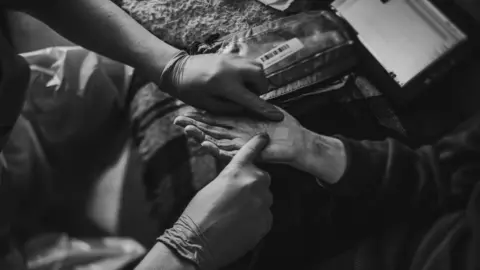End-of-life care demand challenging for paramedics
 SCAS
SCASParamedics are experiencing wide-ranging challenges in responding to an increasing number of end-of-life care patients, according to research from the University of Southampton.
The study highlights the issues paramedics face, including lack of patient information, barriers to administering medication, and insufficient funding.
Dr Sarah Holmes, Chief Medical Officer at Marie Curie, said: "We know that pressures on ambulance services are significant, and this study highlights the importance of equipping paramedics with the right tools to do their work."
Duncan Robertson, chief paramedic for South Central Ambulance Service also welcomed the research.
"It is great to see this important area of research getting published and it will help ambulance services frame how we can better support our paramedic workforce to provide excellent care at the end of a patient's life", he said.
But he did go on to warn that, "as with any research, the paper is not to be read in isolation, but contributes to a wider body of knowledge".
According to the paper, an ageing population coupled with shortfalls in community healthcare services is placing an increasing reliance on paramedics to deliver care during a patient's last year of life.
Researchers conducted an online survey of over 900 paramedics across all 11 NHS trusts and found paramedics frequently attend patients in their last year of life, with 57 per cent estimating they do so at least every seven shifts, and 89 per cent at least every 14 shifts.
But prior to arrival, 45 per cent of paramedics reported never or rarely knowing the patient's end-of-life status – just 14 per cent said they often or always knew.
Dr Natasha Campling, Associate Professor at the University of Southampton and lead author of the paper said:
"Our research shows that paramedics are being asked to make such complex decisions without all of the necessary information, support, resources and training to do so."
She went on to say: "For patients at end of life, when paramedics are called to scene they need to be able to, for example, distinguish between reversible causes that require hospital treatment and those associated with underlying condition(s) or the dying process that can be relieved through palliative care and appropriate symptom management.
You can follow BBC Hampshire & Isle of Wight on Facebook, X (Twitter), or Instagram.
